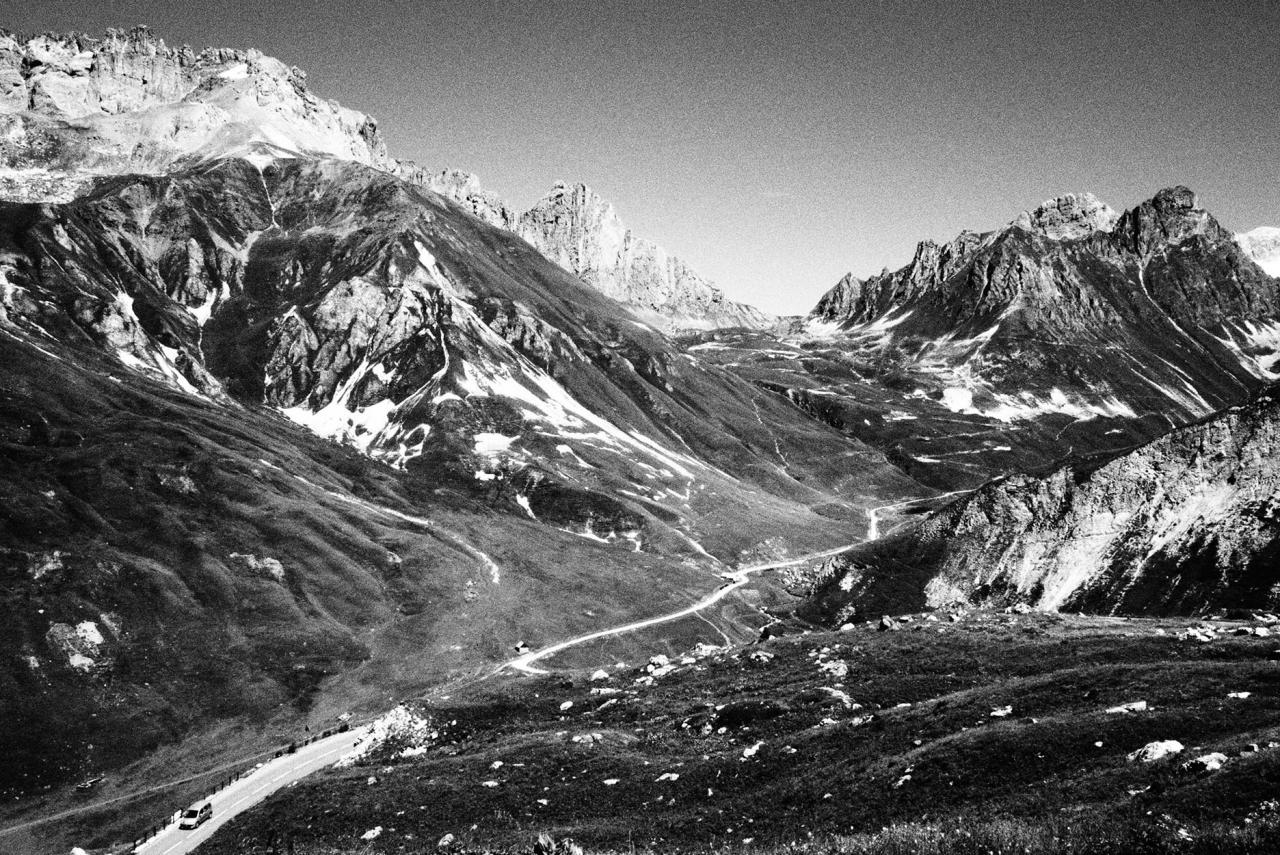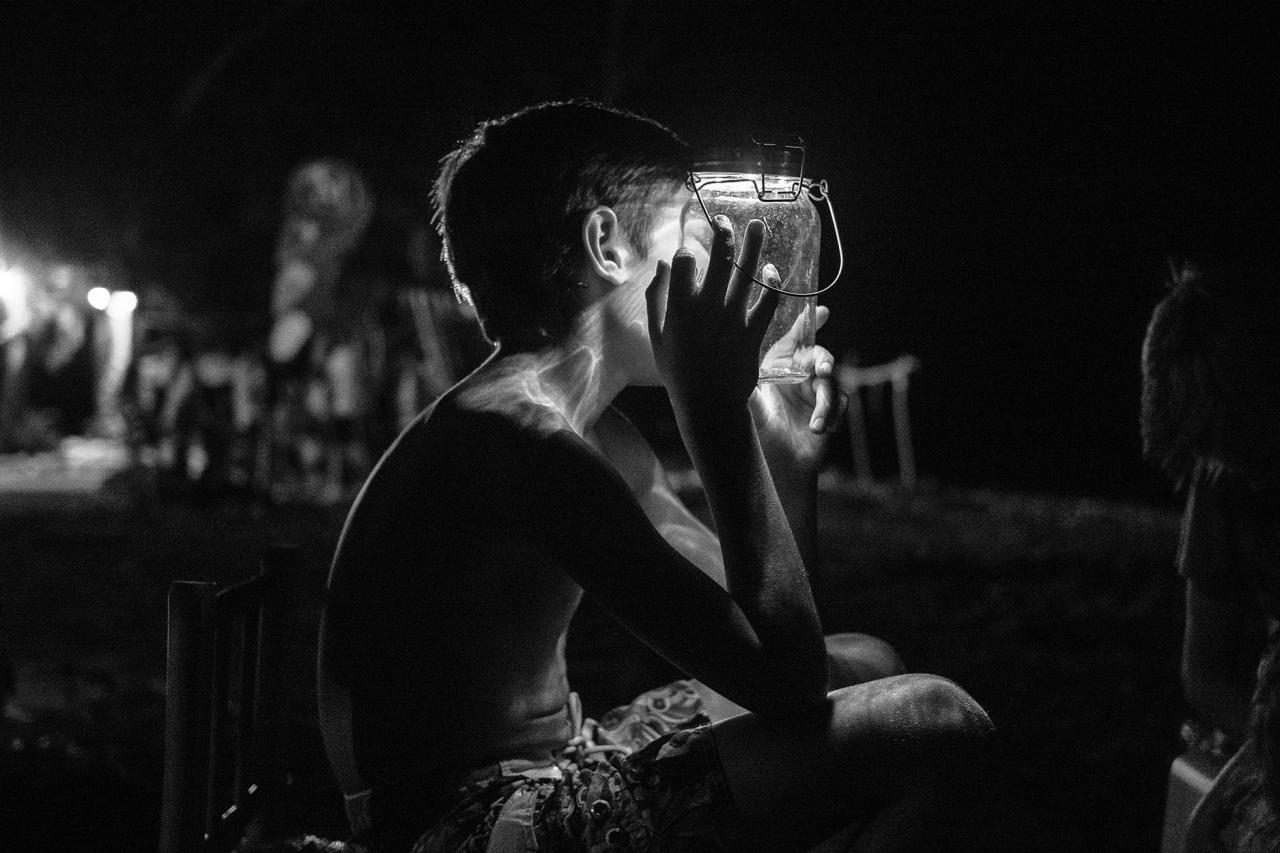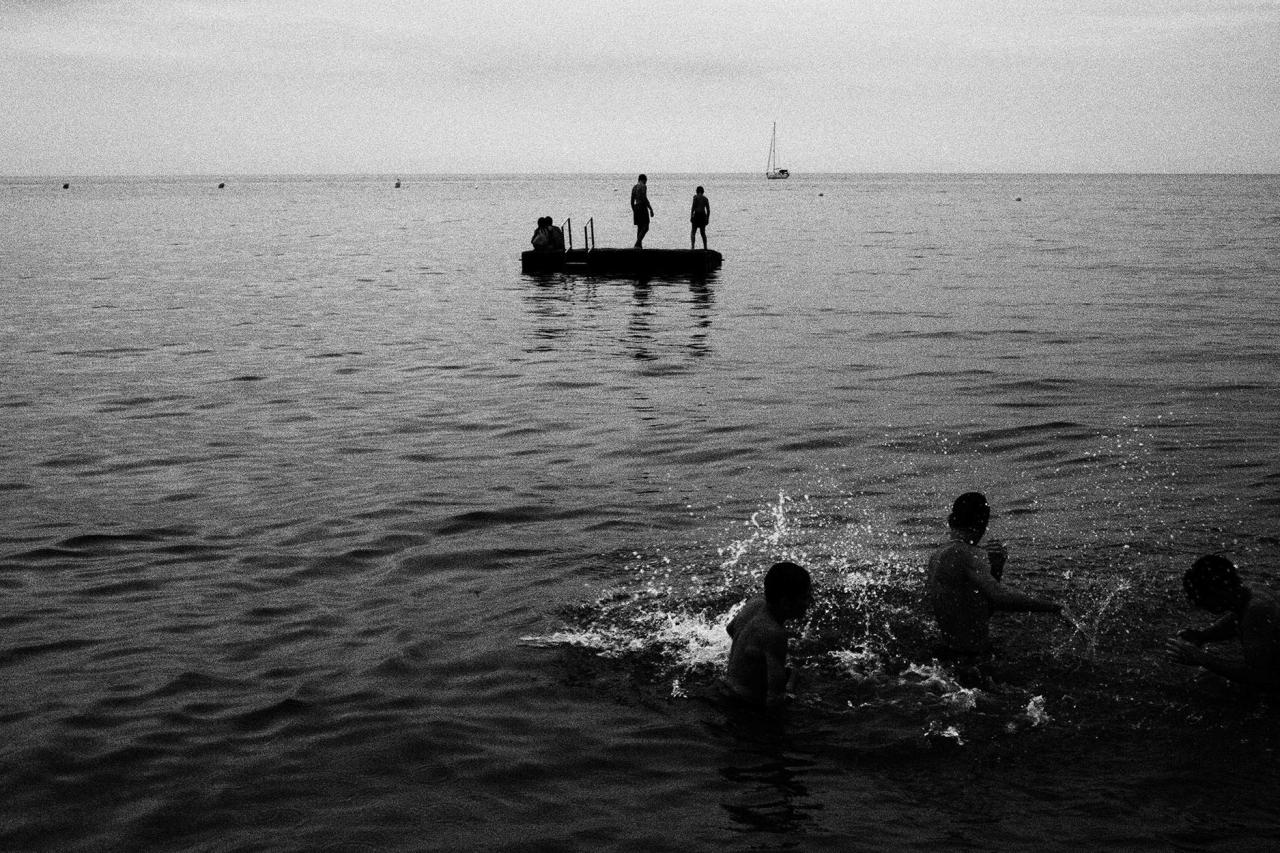Entretien - Antimémoires
Entretien entre Valentine Zeler et Romain Philippon publié sur le site InFrame
2020

Photographies argentiques et numériques, textes, dimensions variables, édition numérique en ligne.
Valentine Zeler : Can you tell us about Antimémoires (Anti-memories) ? How did this project start with Yann Hamonet ? What was the trigger that launched Antimémoires ?
Romain Philippon : Antimémoires is an online photographic project, on the borderline between autobiographical diary and documentary fiction. It starts first of all, with the desire to explore and sort through my personal archives. Then, I wanted to find a way to show them, to distribute them, without falling into sharing my private life, or into a honeyed instigating.
VZ : Why did you choose to combine photos with writing ? And to mix your story with the pen of Yann Hamonet, then later on with that of singer Ben Mazué ?
RP : I find it hard to envisage a photographic work without a bit of writing. I wanted to go further in sharing these old images, but I didn’t want to give more details about my life and that of my family. So I proposed to Yann Hamonet to accompany me by asking him to deliver his written « archives ». I proposed to Yann because first of all his writing fascinates me and perfectly echoes my photographic work, but also because we have a relatively similar life path: we both grew up in Paris and then founded a family on Reunion Island. We had decided to work on the project for a year, and Ben Mazué took over for the second one.
VZ : If I understood correctly, the texts are in the present tense but the photos are taken from archives. Why did you choose to go back to those memories ? Is it the expression of a form of nostalgia or of happy melancholy ?
RP : This is the focus of our reflections, and the origin of the project: are our memories, whether photographic or not, pure nostalgia, and can they prevent us from moving forward? Don’t the images we keep shape our memories ?
Won’t the texts that Yann wrote, some of which are only fiction, all become real memories over time ? For my part, I completely assume my nostalgic side, which is much less the case with Yann. So we were able to confront certain points of view and try to start a reflection on the subject.
VZ : In the series, there are many intimate moments, like with your children or your girlfriend, why did you want to share these personal moments ?
RP : My intention was above all to start a more general reflection on my work and my photographic practice. To reflect on the meaning of the images I can produce every day. To take a break, to produce less, and to give meaning to my photos. The Antimémoires site remained relatively confidential, I did not promote it. It was mainly set up to give itself constraints and a certain discipline, not necessarily to « show » or « share ».
VZ : What place does photography take in your life and How do you see the place for « memory » in photography ?
RP : Most of it. Even if I feel that I produce fewer and fewer images over time, my projects and life choices are more and more rooted in photography. Projects for books, meetings, festivals, places…
The memory in photography is for me its main utility. We document in order to keep a trace, be it short or long term, ephemeral or historical. All the images produced outside this documentary framework sometimes seem to me to be futile.

Photographies argentiques et numériques, textes, dimensions variables, édition numérique en ligne.

VZ : You’re talking about an identity search. Did that work help you ?
RP : I grew up in the suburbs of Paris, in a new city that had attracted a whole generation in search of a certain economic Eldorado. In the end, these territories saw the growth of a rootless generation, whose parents had often abandoned the territory of their childhood. I was able to reflect on all this when I saw my children discover the mainland France as an exotic territory, and when I realized the link between the individual and the territory. So yes, even if I’m not a fan of amateur analysis in psychotherapy, this work has surely helped me in a certain form of identity research.
VZ : I saw that small publishing was planned, will it be the finality of this project that you want to close? Don’t you want to continue Antimemories in the present tense ?
RP : A first volume made up of color and a black and white notebook will come out by October, in a limited edition. There will certainly be a second volume next year to close the project because you have to know how to move on! On the other hand, I’m going to start another project, with several writers, and which will be inspired by Antimémoires in the form.
VZ : What were your inspirations for this work ? And in general ?
RP : Rather writers, as is often the case, than photographers. I’m thinking of Dany Laferrière, who tells the story of exile and the scents of memories so well, or of course Pagnol, who describes the time of love when you discover that your family is no longer the center of your life. In photography, I wouldn’t be very original in quoting Sally Mann’s work, but also the anonymous project I recently discovered, which I liked a lot.
VZ : What’s next for you ? Any upcoming projects ?
RP : Always ! I am currently writing a long term project, which will aim to document part of Reunion Island, with Thierry Hoarau. I’m still editing the magazine Fragments. And of course, Inland Stories, which I joined last year, and which we are trying to develop with all the talented photographers who are part of it.
VZ : Your Top 5 photography books ?
RP : I change my top 5 every year or so, but I would say :
– Sentimental Journey by Araki Nobuyoshi
– Les Gorgan by Mathieu Pernot
– I’m about to call it a day by Bieke Depoorter
– The Roma Journeys by Joakim Eskildsen
– Grays the mountain sends by Bryan Schutmaat.
Lire l’entretien sur le site de Inframe